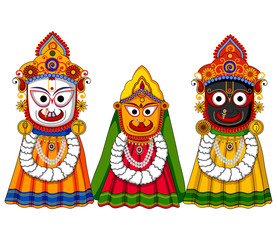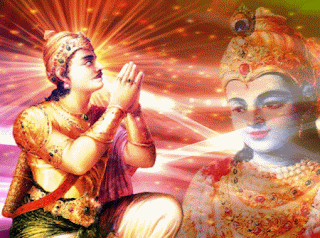Kaivalya or final emancipation
Kaivalya ou emancipação final
purusãrtha-sunyãnãm gunãnãm pratiprasavah kaivalyam svarupa-pratisthã vã citisaktih iti||34||
Kaivalya is the state following re-absorption of the gunas because of their being devoid of the goal of the purusha, and as a result, purusha is established in its real nature, which is pure consciousness.||34||
Kaivalya é o estado que segue a reabsorção dos gunas por serem desprovidos do objetivo do purusha e, como resultado, o purusha é estabelecido em sua natureza real, que é a consciência pura. || 34 ||
The human body mind , and activities are a play of the gunas, the triple qualities of nature.
O corpo humano, a mente e as atividades são uma brincadeira dos gunas, as triplas qualidades da natureza.
The purusha continues the drama of life through the help of the gunas.
O purusha continua o drama da vida através da ajuda dos gunas
Kaivalya is eternally established in one's own Self.
Kaivalya é eternamente estabelecido no próprio Ser.
Thus the blessed one reaches the state of kevala or kaivalya mukti, complete independence..
Assim, o abençoado atinge o estado de kevala ou kaivalya mukti, completa independência.
om shri gurave namah

































